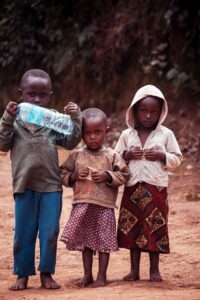Third Culture Kids: Identity, Challenges, and Global Belonging
Third Culture Kids (TCKs) are children who grow up in cultures different from their parents’ home culture. They form a unique identity shaped by constant mobility, multicultural exposure, and diverse social environments. This identity influences education, relationships, and career paths.
What Are Third Culture Kids?
Third Culture Kids are defined as individuals who spend their formative years in a country different from their family’s nationality. Their identity emerges from three cultural dimensions:
-
First Culture: The culture of their parents or ancestry.
-
Second Culture: The host country where they live during childhood.
-
Third Culture: A blended identity formed by living between worlds.
Historical Background of the Term:
The concept of Third Culture Kids was first introduced by Dr. Ruth Hill Useem in the 1950s. She observed American children in India who developed a hybrid cultural identity. Later, David Pollock and Ruth Van Reken expanded the research and brought global attention to TCK experiences.
Categories of Third Culture Kids:
Third Culture Kids are not limited to one group. They appear in multiple categories depending on parental professions.
-
Diplomatic TCKs: Children of foreign service and embassy workers.
-
Military TCKs: Often referred to as “military brats.”
-
Missionary TCKs: Children raised in religious or humanitarian missions.
-
Corporate TCKs: Children of expatriates working in multinational corporations.
-
Educational TCKs: Children of international teachers and professors.
Characteristics of TCKs:
TCKs share key traits across different backgrounds.
-
Develop adaptability in diverse environments.
-
Acquire multilingual skills from early exposure.
-
Demonstrate cross-cultural empathy.
-
Build resilience through frequent relocations.
-
Struggle with defining “home” or belonging.
Identity Development Among TCKs:
Identity formation for Third Culture Kids is complex. Unlike peers who identify with one nationality, TCKs navigate multiple cultural frameworks. This often leads to cultural hybridity—a condition where individuals integrate different cultural traits without fully belonging to one.
Educational Pathways of TCKs:
Most TCKs attend international schools, boarding schools, or local institutions. International Baccalaureate (IB) and United World Colleges (UWC) are common educational pathways. These schools promote cultural literacy, global awareness, and academic flexibility for mobile families.
Emotional and Psychological Aspects:
TCKs experience both strengths and struggles.
Positive Outcomes:
-
Enhanced social intelligence.
-
Broader worldview.
-
Strong problem-solving ability.
Challenges:
-
Difficulty forming lasting attachments.
-
Sense of cultural homelessness.
-
Struggles with reentry into passport countries.
Advantages of Being a TCK:
Growing up as a Third Culture Kid brings unique benefits.
-
Gain cultural adaptability.
-
Build strong communication skills.
-
Foster global awareness.
-
Develop leadership qualities.
-
Prepare for international careers.
Challenges of TCK Life:
Despite advantages, TCKs encounter difficulties.
-
Experience frequent relocation stress.
-
Face identity conflicts.
-
Manage short-term friendships.
-
Struggle with cultural belonging.
-
Deal with reverse culture shock when returning “home.”
Adult Third Culture Kids (ATCKs):
Adult TCKs often retain global perspectives shaped during childhood. They frequently pursue careers in diplomacy, humanitarian work, global business, and education. However, they may struggle with long-term commitments due to past mobility.
Third Culture Kids vs. Immigrant Children:
While similar, TCKs differ from immigrant children.
| Feature | Third Culture Kids | Immigrant Children |
|---|---|---|
| Mobility | Frequent relocations | Permanent settlement |
| Identity | Hybrid, global identity | Assimilation in host country |
| Education | International or boarding schools | Local schools |
| Friendships | Transient, global | Stable, local |
Role of Technology in TCK Identity:
Technology helps TCKs maintain friendships across borders. Digital communication reduces isolation after relocation. Online platforms also preserve cultural connections and strengthen global identity.
Cultural Intelligence in TCKs:
TCKs often display high cultural intelligence (CQ). Their ability to navigate multiple cultural systems makes them effective in international workplaces, negotiations, and leadership roles.
Global Citizenship and TCKs:
Many Third Culture Kids adopt a global citizen identity. They embrace universal human values, advocate for human rights, and engage in cross-cultural initiatives. Their upbringing prepares them for roles in global organizations and NGOs.
Famous Third Culture Kids:
Several notable figures grew up as TCKs.
-
Barack Obama: Childhood in Indonesia.
-
Kobe Bryant: Raised in Italy during early years.
-
Riz Ahmed: British-Pakistani actor with cross-cultural identity.
-
Anderson Coope: Multicultural exposure shaped global perspective.
Reentry Shock Among TCKs:
Reentry shock occurs when TCKs return to their passport country. They often feel foreign in their own culture, leading to reverse culture shock. This adjustment can be harder than adapting to a host country.
Support Systems for TCKs:
Various organizations support TCKs and their families.
-
Families in Global Transition (FIGT) supports globally mobile families.
-
International Baccalaureate (IB) schools foster cross-cultural learning.
-
Counselors and therapists assist with identity struggles.
-
Online networks connect TCKs globally.
Future of Third Culture Kids:
Globalization, migration, and international careers will increase the TCK population. As remote work expands, families will relocate across borders, shaping new generations of culturally hybrid children.
Conclusion:
Third Culture Kids represent a unique cultural identity born from mobility and globalization. Their adaptability, global awareness, and resilience make them valuable contributors to international society. While challenges exist, support systems continue to help them thrive.







